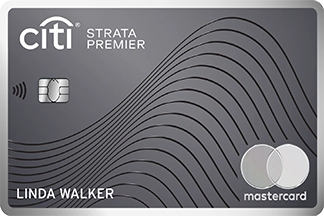- myFICO® Forums
- FICO Scoring and Other Credit Topics
- Understanding FICO® Scoring
- Re: Current Utilization vs Average Balance vs High...
- Subscribe to RSS Feed
- Mark Topic as New
- Mark Topic as Read
- Float this Topic for Current User
- Bookmark
- Subscribe
- Mute
- Printer Friendly Page
Current Utilization vs Average Balance vs High Balance
Is your credit card giving you the perks you want?
Browse credit cards from a variety of issuers to see if there's a better card for you.
- Mark as New
- Bookmark
- Subscribe
- Mute
- Subscribe to RSS Feed
- Permalink
- Report Inappropriate Content
Current Utilization vs Average Balance vs High Balance
I know utilization both total and per account is a significant factor in scoring. But what about Average and High Balance. Do either effect the score nearly as much as current utilization (current balance) and roughly, by how much relative to UTI? Does how that information is treated in the approval process vary greatly from lender to lender?
In other words, if average and high balance data points make a significant difference in score or approval chances, which of these situations is best?
a) You charged a total of 90% your credit limit every month and then paid it off completely before the balance was reported each month (assuming you had at least one other account that wasn't a zero balance.)
b) You never charged more than 9% of your total available credit and you always paid the card off before statement close date so the statement balance was always zero.
c) You never charged more than 9% of your total available credit and your balance was never zero, but always lower than 10%.
Or compared to UTI are average and high balance data points relatively insignificant?
- Mark as New
- Bookmark
- Subscribe
- Mute
- Subscribe to RSS Feed
- Permalink
- Report Inappropriate Content
Re: Current Utilization vs Average Balance vs High Balance
Who would know this other than the FI? I don't see how it would affect your Credit Reports. Am I missing something? Wouldn't your utilization always be zero in each of the scenarios?



EQ FICO 9 - 770
EX FICO 9 - 758
Citi (2) | Discover | HSBC | BOA | NFCU (2) | WF (2) | Simmons Bank | FNBO (2) | PENFED | BBVA | US Bank | Lowes | Care Credit | Home Depot AU
- Mark as New
- Bookmark
- Subscribe
- Mute
- Subscribe to RSS Feed
- Permalink
- Report Inappropriate Content
Re: Current Utilization vs Average Balance vs High Balance
@Jazee wrote:I know utilization both total and per account is a significant factor in scoring. But what about Average and High Balance. Do either effect the score nearly as much as current utilization (current balance) and roughly, by how much relative to UTI? Does how that information is treated in the approval process vary greatly from lender to lender?
In other words, if average and high balance data points make a significant difference in score or approval chances, which of these situations is best?
a) You charged a total of 90% your credit limit every month and then paid it off completely before the balance was reported each month (assuming you had at least one other account that wasn't a zero balance.)
b) You never charged more than 9% of your total available credit and you always paid the card off before statement close date so the statement balance was always zero.
c) You never charged more than 9% of your total available credit and your balance was never zero, but always lower than 10%.
Or compared to UTI are average and high balance data points relatively insignificant?
It's not a factor.































Total revolving limits 568220 (504020 reporting) FICO 8: EQ 689 TU 691 EX 682
- Mark as New
- Bookmark
- Subscribe
- Mute
- Subscribe to RSS Feed
- Permalink
- Report Inappropriate Content
Re: Current Utilization vs Average Balance vs High Balance
Average balance and high balance are not Fico scoring factors. That's not to say they aren't factors looked at by lenders when checking out your report, but they won't impact your Fico scores. Utilization is the only factor you mentioned that impacts Fico scoring.
- Mark as New
- Bookmark
- Subscribe
- Mute
- Subscribe to RSS Feed
- Permalink
- Report Inappropriate Content
Re: Current Utilization vs Average Balance vs High Balance
Thanks for the confirmation. So if and how the Lenders treat those data points then is essentially an unknown.
- Mark as New
- Bookmark
- Subscribe
- Mute
- Subscribe to RSS Feed
- Permalink
- Report Inappropriate Content
Re: Current Utilization vs Average Balance vs High Balance
Correct, and I would say it likely varies from lender to lender. Some may always consider that information, some may slightly consider it and perhaps some don't consider it at all. No way of ever knowing for sure.